|
 VigilanceVoice
VigilanceVoice
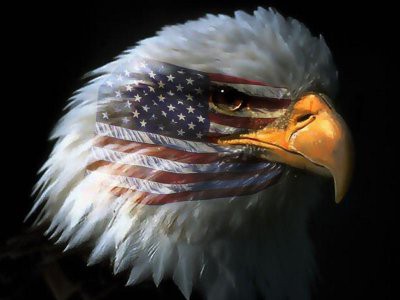
VigilanceVoice.com
Monday--August
26, 2002—Ground
Zero Plus 348
Who's To Say:
"That's So Bad..."
by
Cliff McKenzie
Editor, New York City Combat Correspondent News
GROUND ZERO, New York
City, August 26--There's an old story that floats about regarding a
farmer and his son that takes place prior to the Civil War.
The farmer raised horses. One day, his only son left the
corral ajar and all the horses ran away. Neighbors, knowing
the farmer's livelihood was based on his stock, came to express their
regrets. "That's too bad," they chimed. "Your farm is ruined."
The old farmer reportedly took a chaw
of tobacco, studied the ring of sad faces and replied--"Who's to say
that's so bad...?"
Confused, the neighbors scratched
their heads and left, puzzled why the old farmer wasn't upset, sad and
angry at the world for his loss.
A few days later the herd of mares
who escaped were seen on the horizon. They were trotting back to the
farm, and with them was a great wild stallion, a perfect stud male who
would insure the breeding of a fine line of horses for many years.
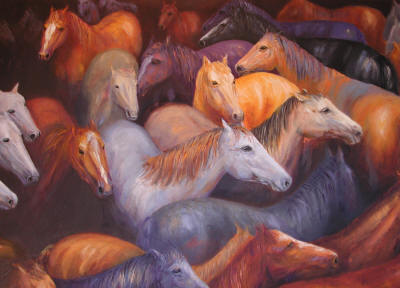 |
The old farmer reportedly
smiled, and said to himself, "Who's to say that's so bad."
The farm was happy and prosperous for
years. Then one day, the farmer's son was thrown while breaking a
horse and his leg badly mangled, turning him into a cripple.
Again, the neighbors gathered around the old farmer and issued their
condolences. Without the son to help him run the farm, they were
sure the farm would degenerate.
"That's so bad," they commiserated.
"Who's to say that's so bad," replied the
farmer, his eyes bright. "Who's to say..."
Again, the neighbors shrugged and walked
away, wondering once more why the farmer wasn't mad at God or his lot in
life. After all, his only son was now a cripple and his
ability to work his livestock dramatically reduced.
Not long after the crippling of his son,
the Civil War broke out. All the young men in the town were
conscripted to fight except for one, the crippled son of the farmer.
"It's too bad your son can't fight for his
country like ours," commented his neighbors proudly.
"Who's to say that's so bad," the farmer
replied in the same, clear-eyed manner that startled those seeking to feel
sympathy for the farmer.
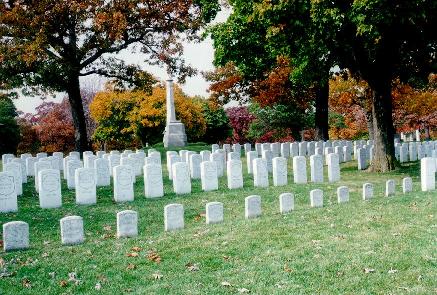 |
|
CIVIL WAR
CEMETERY |
As the war dragged on and
finally ended, none of the sons of the other men returned. They had
all been killed, all, that is, save one, the farmer's crippled son, who
had learned from his father to say, "Who's to say that's so bad."
*
* * * *
This story has stuck with me for many
years. I like it because it suggests that our lives are a two-sided
coin--on one side is the darkness and sadness of Terrorism, on the other,
the bright hope of Vigilance.
The farmer's neighbors saw only the
Terror-embossed side of the coin. They looked only at "what appeared"
to be the present, and blinded themselves to the future. Their
myopic view led them to a state of Complacency, or rather a sense of futility
because the present became the future, time froze in the turmoil of the
moment.
Conversely, the farmer took the
Vigilant View. He saw the other side of the coin--the
embossing that shines hope on the future. He saw the coin of
circumstance as representing that none of us has the power to say that
something bad in our lives may not ultimately turn out for the good--if we
keep our eyes and hearts open to that possibility.
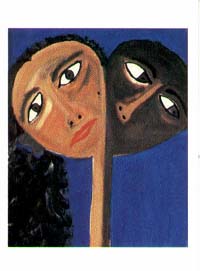
|
Recently, a close friend of mine was
telling me about her mother. It seems for years, her mother's
father had molested her nightly, from age seven to age fourteen.
Her mother kept this secret from her two daughters until events in her
life bore so heavily that she broke down and shared the secret with one of
them, my friend.
Her mother's life wasn't a happy one.
The mother's husband, while a good father to his children, was prone to
infidelities, causing her mother great pain. The pains of the father's
frequent molestations and the husband's infidelities were buried deep in
her soul.
Then her mother contracted
cancer, adding to her woes. She also lost her job. Her
life seemed in ruins. In utter depression, she broke down and shared
with my friend her troubles, and the sadnesses that turned her goal of
living a happy life into a book of physical and emotional Terrorism.
Her mother was weary of the seemingly never ending sorrows.
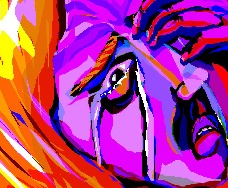 |
I was walking back from the grocery
store with my friend, a mother of two young children, helping her carry
groceries. We had bumped into one another while I was
shopping. As she related the gruesome story of her mother's
travails I listened and then said, "Who's to say that's so bad?"
Startled, my friend stopped and queried me.
"What do you mean? My poor mother is a total victim. Her
life has been about people walking on her."
I then told her the story about the old
farmer and his crippled son.
"I don't understand," she said. "What
has that to do with my mother?"
"What if everything that happens us to in
life, good and bad, has a reason behind it," I offered.
"What could be good about my mother feeling
terrible, violated, victimized," she asked.
"Perhaps all those things had a reason.
Take you, for example. You are a wonderful person. You
embody all the best qualities of a human being. What if all
the pain and suffering your mother endured was to protect you from harm?
What if all the anguish your mother went through had a purpose to give you
the beautiful outlook you have on life?"
"Then I wouldn't want it if it cost my
mother her happiness," she said.
"Of course you wouldn't," I answered.
"That's why you are a beautiful person. You were blessed with
a special gift of caring for everyone in the world, and that ability to
love life unconditionally came from your mother. Perhaps she
shielded you from the horrors she experienced so that you could see the
world as she wanted to, as she was deprived from seeing and living.
Perhaps if she had not undergone all the suffering in her life, she would
not have been driven to give you the gift you have. Perhaps she was
robbed of her innocence so that you might develop yours, under her
guidance."
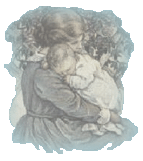 |
"But that is such an awful price," she
replied. "I would never want to think all her suffering was just for
me. That would make me party to her Terror. I'm not sure
I like what you're saying."
"Who's to say that's so bad," I answered.
"Maybe it's okay for you to not like it. But you had nothing to do
with the cause. But you were the recipient of the effect.
The farmer's son left the gate open. He caused the loss of the
horses. But the effect, the return of the mares with the
stallions, that had nothing to do with the boy's actions. It
was the universe, or God's will, if you care to look at it religiously, in
operation."
"But why would God or life make one suffer
to provide another happiness. It seems cruel, unfair."
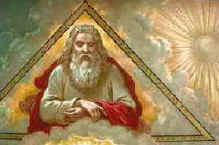 |
"Maybe not," I said. "Maybe life
deals us hands that we can play a variety of ways. No matter
what happens to us, we can either learn and grow from the worst of
experiences, or we can choose to wallow in the sadness and suffering and
drown ourselves in our self pity, in the Terror of being beaten up by
life. Maybe God gives us a choice to deal with the tragedies
in life instead of causing them. If He or She were the cause,
then He or She would be the Devil not God. But if He or She is here
to help us pull ourselves out of the muck and mire, then that's another
issue. It's about hope in the future rather than suffering in the
present or past."
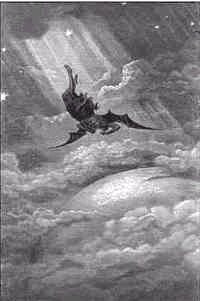 |

|
"I'm not following how my mother's
molestation or her troubled marriage offers any hope for the future?"
"Look at your children. Your
mother helps you care take them. She issues to your children
incredible hope in the future. She guards their innocence. She
respects every cell in their bodies, and loves them with such passion that
her life's greatest beauty is expressed in their joy when they see her,
when they are with her. What if part of all your
mother's suffering was designed to give your children an incredible
fountain of love, something only one who had suffered such a horrible
childhood and failed expectations in marriage as she has had could offer?
Would that be so bad?"
"It wouldn't be bad for me or the kids, but
it would be totally unfair--an injustice to her. I would rather have
her have lived a love-filled life of her own."
"Who's to say that if nothing had happened
to your mother, if her father had been wonderful, and her husband had been
wonderful, whose to say she would have been happy? We cannot
know that, can we?"
My friend paused. "No, but the odds
would be greater that she could have been happy."
"Perhaps," I said, "but we cannot say that
for sure. Your mother might have taken another route in life.
She might have gone in another direction that could have ended in far more
disastrous ends than where she is at today."
"Or," my friend quickly replied, "She could
have lived a totally happy life, free from any pain and anguish."
"Maybe. But few people, if any, live
life without suffering pain and anguish. Life is about
learning. And learning only comes through pain, in all different
degrees. But the key point is, 'Who's to say that's so bad.'"
|
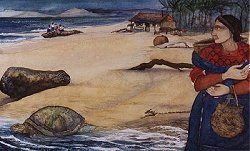 |
"It just seems that she's been
abandoned. She feels that way today. She feels alone,
disenfranchised."
"That's one viewpoint.
Think of the neighbors comments about the farmer when his son was
crippled. All they saw was the pain.
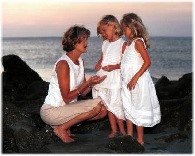 |
Your mother is full
of love. Look at you and your sister, two beautiful young women with
great outlooks on life. You reflect the best in your mother,
don't you?"
"Well, yes."
"Maybe, just maybe in the great
design of things in this world, your mother's mission was to protect you
and your sister from harm. Maybe she took upon her shoulders all the
worst imaginable suffering a woman could endure to protect her children
from such harm. Would any mother sacrifice herself for her
children? Would you sacrifice your happiness for your children's
joy?"
My friend pondered the question.
"Yes, of course. But my mother didn't have a choice in being
molested, or about my father's infidelity. She was a victim in
both cases. She didn't make a choice. She was powerless."
"I understand that," I said.
"The farmer was powerless too when his horses ran away, and when his son's
leg was mangled, and when the Civil War broke out. But he kept
his eye to the Vigilant Horizon. When others crowded around
him to say, "That's so bad," he climbed over the Wall of Terrorism and bet
his chips on Vigilance--he shunned the Terror of the Moment for the
Vigilance in the Future. Who's to say that's so bad?--that was his
creed."
"Are you suggesting that everything
bad that happens to people ends up for the good?"
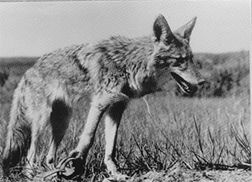
|
"No. I'm sure there are people who
don't see the Vigilant Horizon in the midst of the quagmire of Terror.
They are like the animal caught in a trap. Their only alternative
to escape is to gnaw off their foot. They don't know how to
say, 'Who's to say that's so bad?' But I do believe that no matter
what the tragedies we face in life, we can rise above them if we are Vigilant.
The farmer held fast to his belief that there was more good than bad in
life, more Vigilance than Terrorism. He held the reigns tight
on that issue, while others around him sank to the lowest depths of the
suffering, the pain. I believe because the farmer saw more Vigilance
in the worst of things than Terror, that the universe rewarded him."
"That sounds mystical to me."
"Everything that happens in life is
unpredictable. No one can say doing this will guarantee that.
We have this thing called destiny at work, some call it God's will."
"You mean, God wanted my mother to be
molested, wanted her husband to break marriage vows, wanted my mother to
suffer cancer, to feel victimized, unloved, shunned, abandoned?
If that's true, then God isn't a very nice guy or gal."
"I don't think God is the cause of
anything that happens to us. He or She puts us here to use our
choice, our belief, our faith. Your mother was a victim.
She had no choice in the events that happened to her, just as the farmer
had no choice about what happened to his son. But she has a
choice about how she sees the world as a result of the tragedies in her
life--we all do. " I paused and shifted my grocery bags. The
plastic bag handles were cutting the circulation around my wrists.
"We can look at Nine Eleven," I
continued, "and see a horrible tragedy, a sad ugliness, a scar on our
country's soul--or, we can look at the events as a starting point, a point
of debarkation between living in a world of Terror and living in a world
of Vigilance. We can see the 'victims' of Nine Eleven not as
'innocent victims,' but as Sentinels of Vigilance, who died to protect us
from future harm, to give us tools to fight Terrorism of both Emotional
and Physical nature. We can walk around sad and angry and want
to bomb and kill the enemy in far away lands, or we can take inventory of
what happened and change our lives, become more Vigilant in all our
thinking and actions and focus on the real benefactor of all
tragedies--the children.. The Terrorists who attacked your
mother throughout her life--her father, her husband, cancer, the people at
her work who let her go--may all have had some part in a great play that
ends up with joy and happiness as the result. Let me ask you
this--do you think your mother has added joy and happiness to your life?
To your children's lives? To your sister's life?"
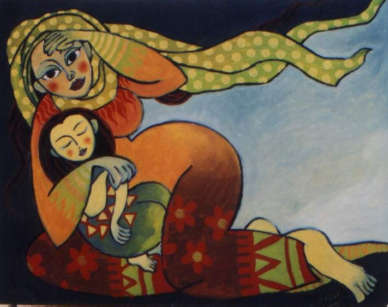 |
"Yes, of course, but at such a cost?
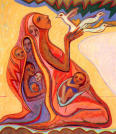
|
"Who's to say that's so bad," I
replied. "Hope, is what life is all about--at least for me.
I hope that all the bad things in life have a reason. So, I look for
them. I don't always find them, not immediately. But I
will surmise in your mother's case, that all the suffering she underwent
was not for naught. I see the beauty of her life expressed in
you and your sister and your children. I see your
incredible ability to love life, and to love your children as extensions
of the love your mother gave you. She might not have had it to give
were it not for circumstances in her life that no one would wish upon
anyone. But history cannot be changed, it can only be a stepping
stone to making the future safer, more secure. I see the
same situation with Nine Eleven. There was so much suffering,
pain and anguish that it shrouded one's vision to find good out of the
bad. But, if we don't look for, find, and apply the best of the
worst, then we lose. We suffer in the suffering. We nail
our feet in the horror. We Terrorize the Terror."
"So, are you saying the bad that
happened to my mother was good?"
"No. I'm saying out of the
worst of situations comes lessons. And if we take the lesson of the
worst situation and apply it to life, we are acting Vigilantly.
If we ignore the lesson and continue to suffer, we become our own
Terrorists. The statement, Who's To Say That's So Bad, is a
Vigilance Exclamation, it's not an act of concession, not a surrender to
Complacency. Who's To Say That's So Bad translates to 'where's the
pony in the pile of manure?'"
"Pony? Manure?"
"Sorry. There is another story
about a couple of twins who were so different their mother took them to a
child psychologist. The psychologist told the boys he was
going to put them in a room where there was a pony, and their job was to
find the pony because it was hidden. In went the first twin.
The room had a two-way mirror so the mother and psychologist could watch.
The room was filled with all kinds of toys shelves, drawers and in the
middle, a giant pile of manure. The first twin looked
everywhere and then came out disgruntled, angry, and said: 'There's
nothing in that room but a pile of manure,' he griped. Then the
second twin went in. He surveyed the room and then made an immediate
dash to the pile of manure and began digging through it, muttering as he
did, 'I know...I just know there's a pony in here somewhere.'
Some find Hope in a rainbow, some find it buried in a pile of manure."
"Are you saying that if my mother looks for
the lessons from her tragic life, she'll be glad she underwent all the
suffering? That's absurd, I think."
"No, I'm not saying that. No
one deserves to suffer, but we do. No one deserves to be a
victim, but we are. Life is full of potholes. Some are
more devastating than others. What I am saying is that we
can't change the past or present but we can the future.
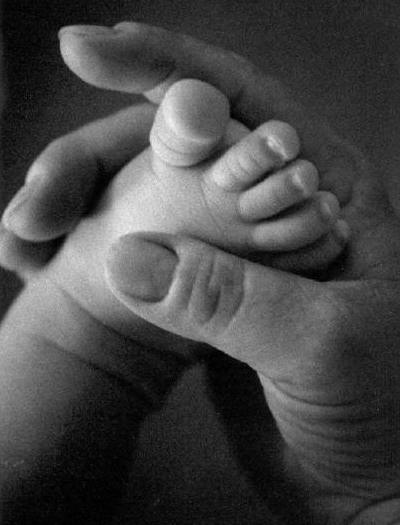 |
We can
take the lessons of yesterday and today into tomorrow. We can
apply them to our benefit. Obviously your mother has brought love
and happiness to others. Just look a yourself and your children.
She's brought all the beauty out of you and your sister, and is now
bringing it out of your grandchildren. She's giving the gift
of life she was deprived as a child to your children, as she did to you
and your sister."
"That's a bit of a stretch, but I understand.
It just doesn't seem to justify the pain."
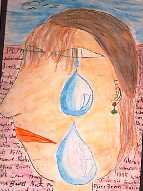 |
"Nothing justifies the pain. That's
the point. The pain and lesson aren't attached. They
come from different sources. Pain comes from Terrorism.
Lessons from Vigilance. What happens in a person's life after the
pain is not a direct link to the pain. It is a choice. A
choice to learn from the pain, or to be stunted by it. Your
mother learned from her pain about how to love her children and
grandchildren. Maybe she'll use her experiences to help others who
suffer as she did. Maybe she hasn't yet fulfilled her destiny in
life completely. Perhaps she'll become a champion of
protecting children from family molestations. Or, she'll become a
counselor for cancer patients, or those suffering from Terrorisms she is
most familiar with. Or, maybe she'll just bury all the pain
and keep suffering. No one knows. Only your mother
can chose her Vigilance or her continued Terrorism."
"But, she's unhappy. Her life is still
screwed up."
"Who's to say that's so bad?"
"I still don't understand."
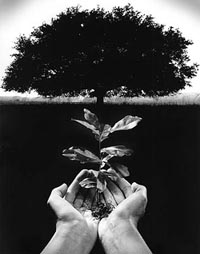
|
"Maybe she's growing and
you don't see it. Maybe she's learning to find happiness in ways you
don't yet comprehend. Remember, one day the farmer's horses
were gone, the next day they appeared. One day the farmer's son was
a cripple, the next day he was alive while others were dead.
Vigilance, if it is sought, happens. Perhaps your mother is
closer to being happy in her life than she's ever been, and you don't know
it, and perhaps she doesn't know it--yet. It goes back to the
farmer's principle of Vigilance--Who's To Say That's So Bad!"
"Hmmmmmm...." My friend was either
tired of our conversation or letting the points sink in, I wasn't sure.
"Thanks for helping me carry the groceries," she said. 'I'll
think about what you said."
"So will I," I replied, handing her the
bags at the door to her apartment.
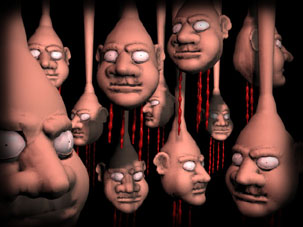
|
As I walked back toward my apartment,
I noted swarms of people walking with their heads down, shoulders slumped,
moving as though the yoke of life was about to grind them into the
sidewalk. I looked at their faces, most of which were frozen
in a dead-end stare, eyes locked on a single path, seeking to go from
point A to point B and hoping nothing would get in the way.
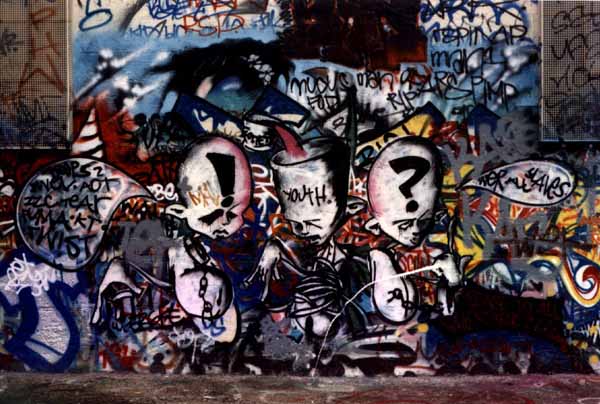
|
But everything was in everyone's way.
Parking meters formed a slalom course, forcing people to veer to the right
or left of them as they came upon deli's with vegetable stands in front
and shoppers blocking their path. People walking three abreast
forced those enroute to their B destination to swerve around them, or slow
so they didn't run them over. Cracks in the sidewalk made some
stumble and falter their pace. Strollers cut wide swaths.
Just walking down the street was not simple. It wasn't a journey
from A to B at all, but one that included the entire alphabet, including
sudden appearances of street bums with paper cups asking for money, the
wail of sirens trying to charge through congested traffic, beeping
horns of impatient drivers, the click, click of street light boxes
mechanically grinding out
STOP--GO.
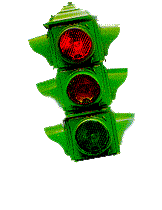 |
Life's journey and a walk on a crowded sidewalk
in New York City weren't too different, I thought. There was
the constant unexpected to be expected, the demand for Vigilance to keep
one from being "victimized" by some event that could occur in the blink of
an eye--a stray bullet, a car out of control jumping the curb, a chunk of
concrete falling from ten stories above, a mugger appearing suddenly..
Nothing was constant. Everything was in flux. Life was in
flux, dancing on the thin strands of Vigilance and Terrorism.
I wondered if my friend thought I was being
fatalistic in my viewpoints about Who's To Say That's So Bad. I
wasn't trying to be flippant, or gloss over the terrible ordeal of her
mother. I was preaching to the choir. I was reminding
myself that life is full of hope and beauty if I chose to look for
it, to wait for it, to believe in it. I knew it was for my friend's
mother, for all who live in the shadow of the Beast of Terror.
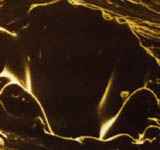
|
But climbing out of Terror's Pity Pit wasn't an
easy task. I'd nailed myself to my cross many times. I knew
Vigilance takes Courage, Conviction and Right Actions to come to fruition.
Sometimes, it seemed impossible for me to conjure up those three
ingredients some call faith, others call destiny.. But I knew
if life was worth living, there must be at least one percent more good
than bad to come from any of the Terrorisms we encounter on our journey
through life. If there wasn't hope, Hitler would have won.
Osama bin Laden wouldn't be on the run, and all the churches, synagogues
and mosques in the world would crumble..
I stood on the corner of my street, watching the
traffic lights change:
STOP!
GO!
STOP!
GO!
STOP!
GO!
STOP!
GO!
STOP!
GO!
In sync with the traffic lights, danced the pedestrian signs--
Walk! Don't Walk!
Walk!
Don't Walk!
Walk!
Don't Walk!
Maybe, I thought, life is all about the traffic
lights.
STOP!
GO!
Walk! Don't
Walk!
Then I thought, "Who's to say that's so bad?"

Go
To Aug 25--Heroes of Terrorism vs. Heroes of Vigilance
©2001
- 2004, VigilanceVoice.com, All rights reserved - a ((HYYPE))
design
|























